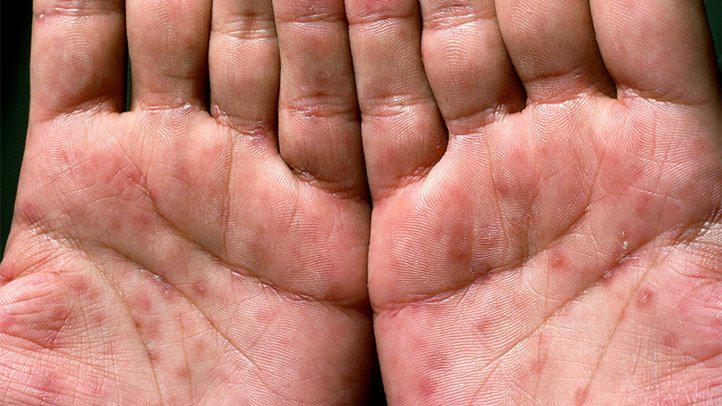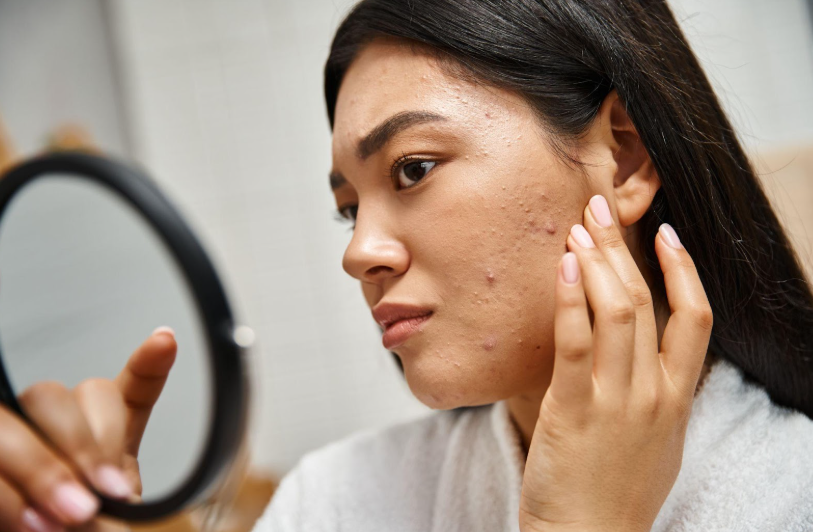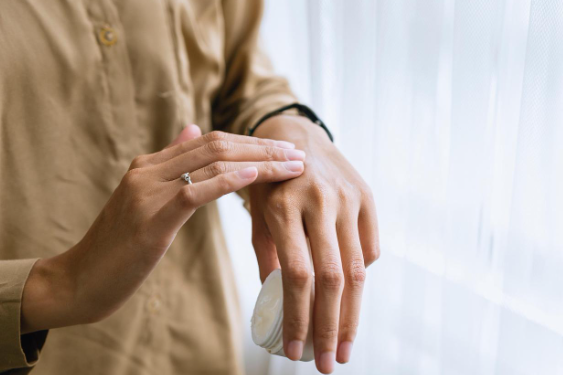Syphilis is a sexually transmitted infection characterized by episodes of active disease (primary, secondary and tertiary) with latent periods in between. Syphilis is contagious and transmitted in three ways: (1) intimate contact with an infectious lesion (most common) (2) blood transfusion (3) during delivery of a baby he/she may contract syphilis from the birth canal. This condition is one that dermatologists are able to help manage and, in fact, dermatology has a long history with syphilis. Believe it or not venereal diseases, especially syphilis, played a prominent role in the field's development as distinct from general medicine. This is because often times venereal diseases, such as syphilis, have symptoms that manifest and become visible on the skin – prompting dermatological expertise on the matter! Although the discussion of venereal disease was considered clandestine at the time, the public health risks of syphilis in the late 1800s demanded attention. Dermatologists rose to the task of caring for these underserved patients, and this expertise in syphilis actually helped to establish dermatology as a legitimate medical specialty. In fact, the early medical journals that were published at the time were called the Journal of Dermatology & Syphilology. The name was dropped in the 1950’s due to a decline in the cases of syphilis. Although the number of cases and incidence of early infectious syphilis have fluctuated widely since the 1940s, we currently are in a dire period of syphilis resurgence; the largest number of cases (27,814) and the highest incidence rate of primary and secondary syphilis (8.7 cases per 100,000 population) since 1994 were reported in 2016, which illustrates the inability of public health initiatives to eliminate syphilis due to a plethora of factors. Despite the present day shift into cosmetics, dermatologists still devote vast amounts of time to studying these disease (syphilis, genital warts, genital herpes, etc.). As with our previous blog discussing genital herpes we will devote some time to discussing syphilis because it is still something that we see more often than people think, and Mississippi ranks in the top 15 states with regards to syphilis cases. This means that it is still a very relevant public health issue for the Hattiesburg and Laurel, Mississippi areas.
Syphilis Facts
- Syphilis is caused by the bacterium Treponema pallidum. It is often called “the great imitator” because many of its symptoms are the same as those of other diseases. The disease was named after a mythical shepherd, Syphilis, from a sixteenth century poem by Girolamo Fracastoro. Syphilis insulted the Sun God, who punished him by striking him and his people down with a new, disgusting disease.
- Syphilis is very contagious and is transmitted by skin-to-skin contact when someone touches a syphilitic sore on another person. These sores can be on the penis, vagina, mouth or anus. The disease is normally transmitted during sexual contact. A pregnant mother who has syphilis can pass the disease on to her unborn baby. This is called congenital syphilis.
- It is unlikely that you will catch syphilis from a toilet seat – unless you’ve been having sex on the toilet seat. Syphilis also cannot be transmitted by wearing someone else’s clothes or sharing cutlery and crockery. This is because, like in the case of gonorrhoea, the disease-causing organism cannot survive outside the body for long.
- There are four stages of syphilis and it is most infectious during the first two stages.
- Primary syphilis begins with a small, round, painless sore (chancre) which usually appears where the bacteria entered the body. This normally occurs about three weeks after infection, but can take up to three months. The chancre remains for about two to six weeks.
Secondary syphilis is mostly characterized by a sore throat and skin rashes on the palms of the hands and soles of the feet. The rashes could however appear anywhere on the body. Other symptoms include:
- Fever
- Headaches
- Fatigue
- Weight loss
- Swollen lymph nodes
- Hair loss
- Aching joints
These symptoms are very often mistaken for other diseases and are the main reason why syphilis is called “the great imitator”. The symptoms will eventually disappear, but you’ll still have the disease.
Latent (hidden) syphilis
is the third stage. Symptoms disappear and, although you are still infected, there will be no noticeable signs that you have the disease. Secondary symptoms may reappear, but one can remain “in limbo” for a number of years until tertiary syphilis emerges.
Tertiary syphilis
is the final stage of infection and can take up to 30 years to appear. Tertiary syphilis can be life-threatening and can lead to a number of apparently unrelated conditions like:
- Infection of the brain or spinal cord (neurosyphilis)
- Blindness
- Deafness
- Memory loss
- Mental illness
- Neurological disorders like stroke or meningitis
- Heart disease
- Syphilis is diagnosed
by testing a patient’s blood or urine. If there is a chancre on the body, the doctor will take a sample to test for syphilis bacteria. If tertiary syphilis is suspected spinal fluid may be collected to test for bacteria. Pregnant women may be tested for syphilis to prevent the possibility of congenital syphilis, which could be fatal for the newborn.
- Syphilis is treated
with a penicillin injection. This is usually cures the condition. People who are allergic to penicillin can be treated with other antibiotics. If you are sexually active, your partner/s should also be treated. Don’t resume sexual activity until you’ve completed your treatment. It is also important to note that bacteria (“superbugs”) that are resistant to azithromycin (traditionally used to treat syphilis) have emerged.
- Syphilis can be prevented
by practicing safe sex or abstaining from sex altogether. It is also a good idea to avoid sex with multiple partners, not sharing needles or sex toys, and getting screened for STIs on a regular basis.
Quick Facts on Syphilis in Mississippi
Mississippi Centers of Disease Control & Prevention Syphilis Facts:
Syphilis
– Primary and secondary (P&S) syphilis (the stages in which syphilis is most infectious) remains a health problem, primarily among men who have sex with men, but congenital transmission of syphilis from infected mothers to their unborn children persists in many areas of the country.
- In Mississippi, the rate of primary and secondary syphilis was 6.4 per 100,000 in 2011 and 7.3 per 100,000 in 2015. Mississippi now ranks 12th in rates of P&S syphilis among 50 states.
- There were 7 cases of congenital syphilis from 2011 through 2015.
If you find yourself exhibiting symptoms similar to that of syphilis and you want a clear diagnosis come in and see myself or one of my colleagues. The best case scenario is that we rule out the disease, and worst case scenario you have the disease but we can help you manage it. This is a contagious disease and I mentioned above that it has had a resurgence in recent years, which highlights the necessity to be safe and smart when having sex with multiple partners. I stress this because syphilis is a disease that carries serious, if not often fatal, consequences and it is a disease that simply refuses to disappear. We treat a number of skin conditions, cancers, and patients with an immunodeficiency, so who better to reach out to for management of syphilis than a dermatologist? If you’re uncomfortable with coming in the office to be face-to-face with the doctor, you can always utilize our online application to virtually visit one of our providers! The link to the online visits are below.











